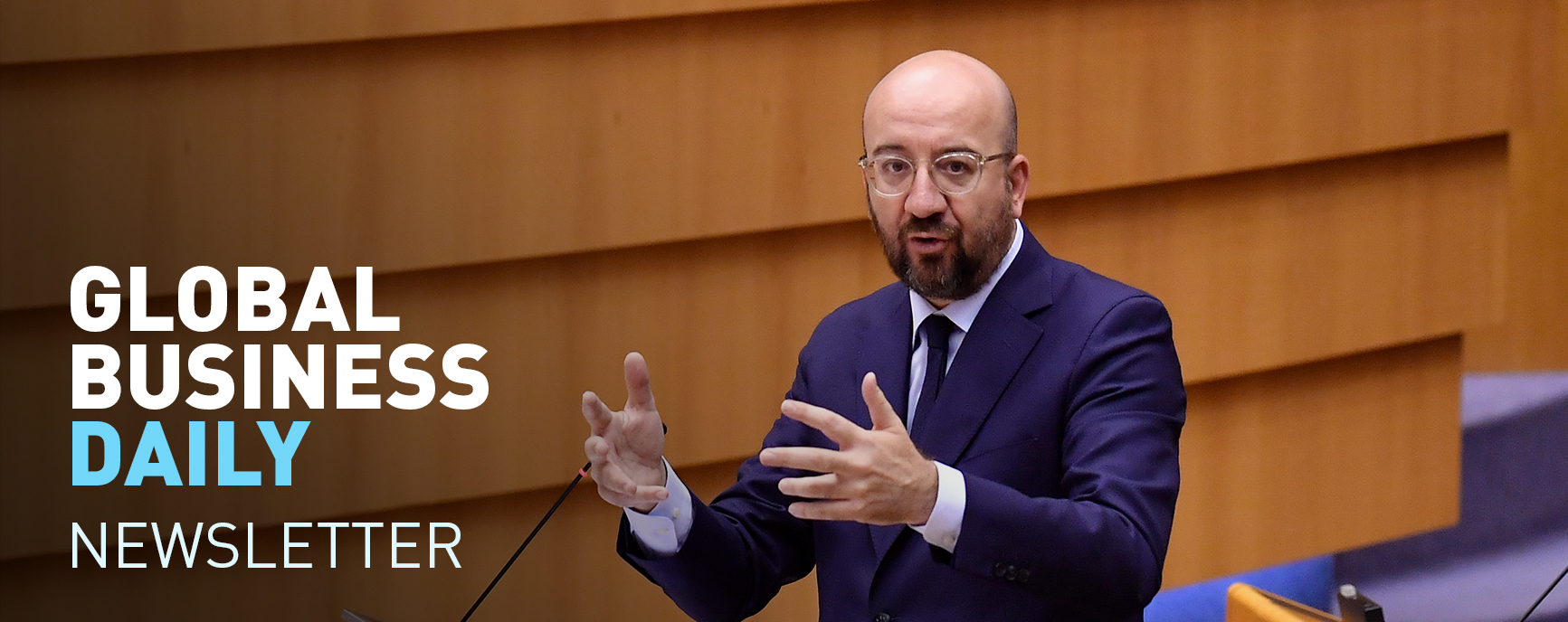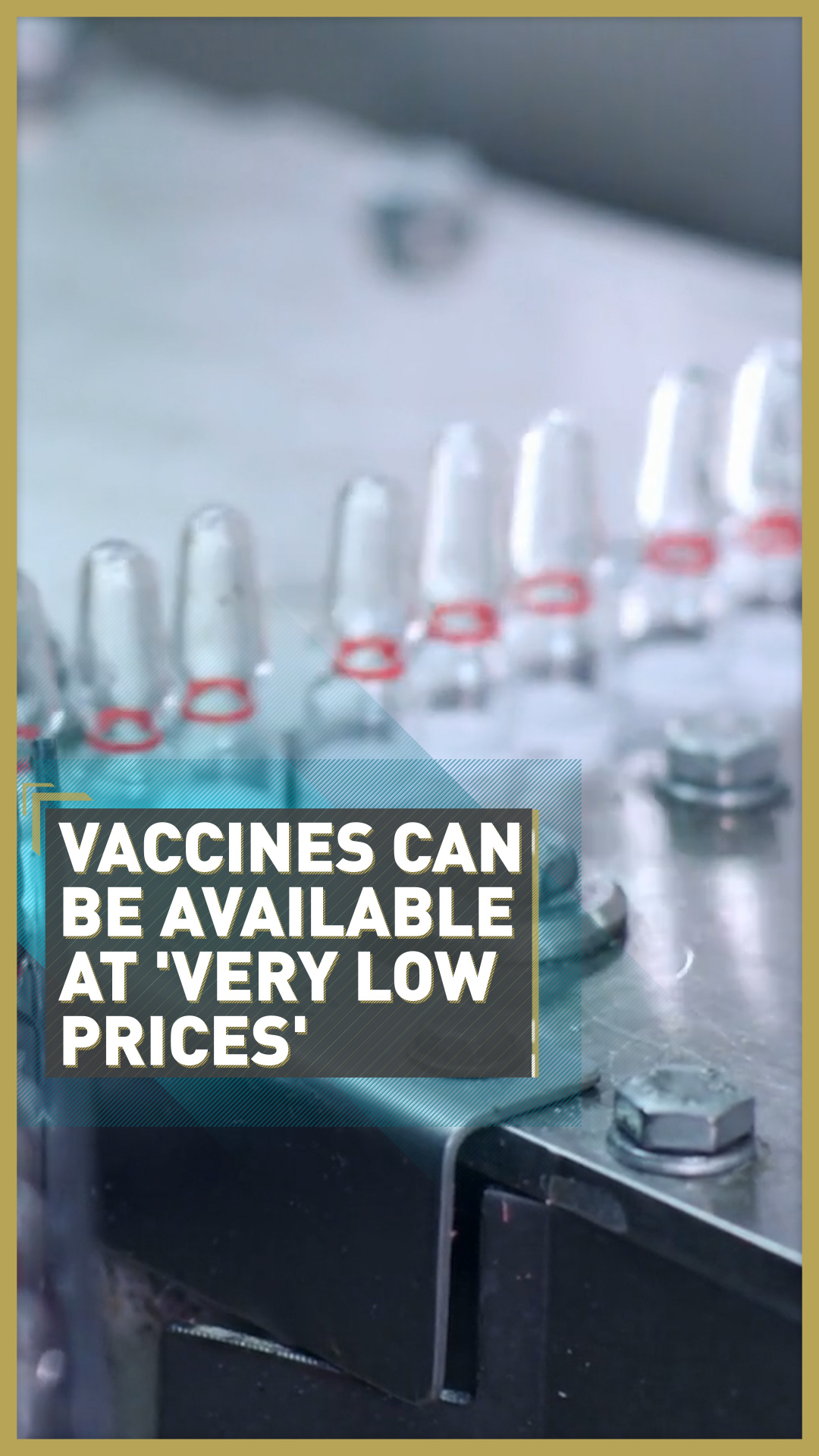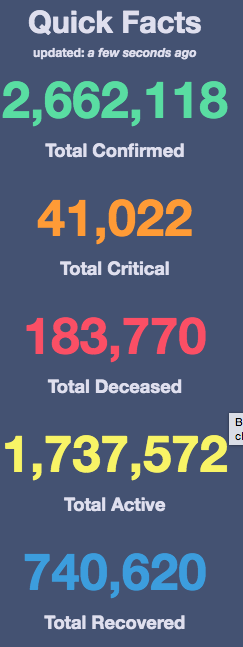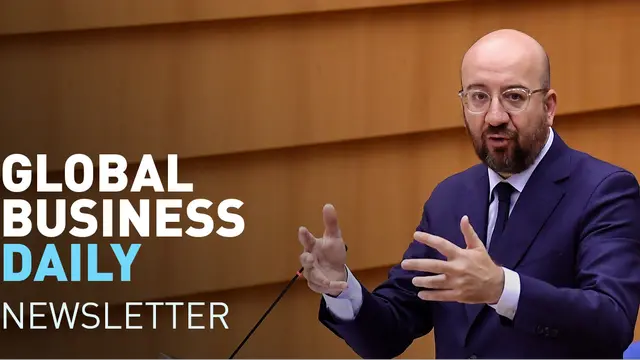"It must be possible to do things quickly in a crisis situation and then, of course, conduct a refinancing in the years after."
German Finance Minister Olaf Scholz was speaking to a TV station in his country, but summed up the mood in Brussels today, as EU leaders meet to thrash out a deal on financial stimulus. His exasperation was shared by many, according to our correspondent Toni Waterman.
It's not the only deal on our radar, though. In non-COVID-19 news, Indian firm TVS has bought the ailing UK-based Norton Motorcycles company, giving hope to many customers around the world who had ordered bikes and thought all hope was lost when the handmade specialists went into administration.
And remember last year when president Trump offered to buy Greenland from the Danes?
His ambassador in Copenhagen has poked the hornet's nest somewhat, by saying the government in Washington is building a financial package for the north-Atlantic island. The Danish representatives have not been impressed.
And finally, scroll to the bottom of today's email for a look at the most up-to-date count of the effect of the COVID-19 pandemic. Believe it or not, the tool was invented by a young man in his bedroom. You can see the full story
on our website
.
Happy reading,
Patrick Atack
Digital business correspondent
**P.S. Did you know we send this briefing by email, too? **
You can sign up to receive it here.

It's the moment of truth for EU leaders. Pressure is mounting for them to quit squabbling and craft a plan to finance a $1.5 trillion COVID-19 recovery fund. But even as the death toll rises and an epic recession looms, expectations ahead of Thursday's video conference were strikingly low.
Yngve Slyngstad, the outgoing head of Norway's sovereign oil fund said he "really screwed up" when he accepted a free flight from his soon-to-be successor. " I am truly sorry for letting you down , for letting the reputation of Norges Bank Investment Management down, and for letting our organizational culture down," he said, raising the question of why he did not resign.
Pakistan is set to ask its creditors for a coronavirus repayment deferral on around $1.8 billion. Islamabad expects the national economy to shrink nearly two percent this year, and has already received a zero-interest loan of $1.4 billion from the IMF.
Norton Motorcycles, a historic British brand ridden by the likes of Hollywood star Clint Eastwood, has been rescued by India's TVS Motor. TVS paid $19 million to buy the ailing firm out of administration and reportedly is planning to spend further millions ona new factory and producing a backlog of orders customers thought they had lost.
Unemployment in China is up by three million, to 26 million , according to the Ministry of Human Resources and Social Security. Lu Hai, a professor at Peking University's Guanghua School of Management, said the figure could yet rise as the export sector continues to be hit by the coronavirus shutting down other markets.
European business activity has fallen at the fastest rate since records began, according to the latest IHS Markit purchasing managers' index. The UK is among those where the majority of business is receding rather than growing, with the French economy also suffering.
Jaguar Land Rover will restart its factories across Europe from 18 May. Factories in the UK, Slovakia and Austria will be at reduced capacity but aiming to meet demand in China , where showrooms are now reopening.
Online travel agent Expedia has appointed a new CEO and two new board members as private equity firms Apollo Global Management and Silver Lake Partners promised to invest $1.2 billion in the company.
Fashion retailer Gap said it is in danger of running out of money amid the global pandemic lockdown. It** has already suspended rent payments **worth $115 million in the U.S. but it may also have to issue new debt to stay afloat.
The U.S. ambassador to Denmark has caused anguish by writing in an opinion piece that Washington DC is preparing a fiscal assistance package for Greenland . The northern Atlantic territory was the center of speculation last year when U.S. president Donald Trump offered to "buy" the island. "They have clearly crossed the line," said Karsten Honge, a Danish lawmaker.
First deputy prime minister of **Russia, Andrey Belousov, said the country may need to borrow as much as $20 billion **dollars to recoverfinancially from the pandemic.
German luxury car brand Daimler has recorded a 70 percent plunge in first-quarter operating profit, with car sales down by around half across Europe. The share price of the brand, owned by Mercedes Benz, has fallen by 52 percent over the past year.
Roche CEO Severin Schwan told CGTN Europe it could take up to 12-18 months for a vaccine to be tested, developed and then ramped up for production and distribution ** – but it could be much cheaper than expected.**
01:38

**Isabel Hilton is a London-based journalist and broadcaster, currently the editor of **
Chinadialogue
. She spoke to CGTN Europe about the 50th Earth Day and what impact the pandemic lockdown is having on minds, as well as the environment.
With the world's preoccupation with COVID-19. Has anyone noticed the 50th Earth Day?
Quite a lot of people have. Of course, there were meant to be lots and lots of live events because it's such a significant anniversary, but it's all gone online. And there's a 72-hour continuous livestream of Earth Day. So it's now three days. And I think there has been a lot of reflection on what happens when we emerge from this particular very difficult moment and what sort of world we can imagine.
This pandemic has made us all realize the value of the great outdoors nature, clean air and quiet cities and so on. But I wonder, won't we just simply rush back gladly to our cars and our old ways as soon as this lockdown is over?
Well, nobody would want a greater appreciation of nature to come this way. But now that it has come, and along with it, an understanding that if we need to if the crisis is deep enough, we can make very, very big changes.
I think it's liberated people's imaginations about what sort of world they'd like to create after the pandemic is over. I don't think it will go back exactly the way it was before. I think that period is really coming to an end and it was coming to an end for all sorts of reasons. And we have many, many new possibilities now, which I'm sure we will be exploring.
We continue to pollute. We continue to abuse the Earth. And I wonder if there really is anything to celebrate on this 50th Earth Day?
Well, I guess it's 50 years and we would certainly wish to have come further. But if you look back to that Earth Day, it was the most remarkable event. Twenty million people took to the streets to demand that their government look after the environment, something that really hadn't been considered in an economy before.
They were angry because of an oil spill. And they were also informed by Rachel Carson's book The Silent Spring. And it was the beginning of the very important civic movement. And if you look at the scale of that movement today, with all its many manifestations around the world, it's a transformation.
And that day, that Earth Day, created a series of institutions, including the Environmental Protection Agency in the United States, new regulations, new ways of looking at the world, new ways of understanding the economy, where you had to count the impacts on the natural world and natural capital. And these are all ideas that are now mainstream. So, yes, of course, we should have gone further. We could have gone further, but we've come a long way nevertheless.
It's interesting isn't it that a health pandemic where we all fear for our lives has us all stopped in our tracks around the world. However, an environmental catastrophe, which is a little more nebulous, doesn't have us pausing our lives?
Yes. I mean, with the health pandemic, there is a real possibility that any of us could die next week. And, of course, an environmental catastrophe, which is in many ways much, much bigger, but it's slower, it feels more distant. I think that the space that the lockdown and the pandemic has given to us and the shock, really, I think to our sense of security and complacency about how things are, has allowed us to think things through differently. And I very much hope we take full advantage of that.
**It's clear, concise, and very easy to use: The COVID-19 tracker created by 17-year-old Avi Schiffman in his Seattle bedroom. **
Click here for the full story.

 简体中文
简体中文

